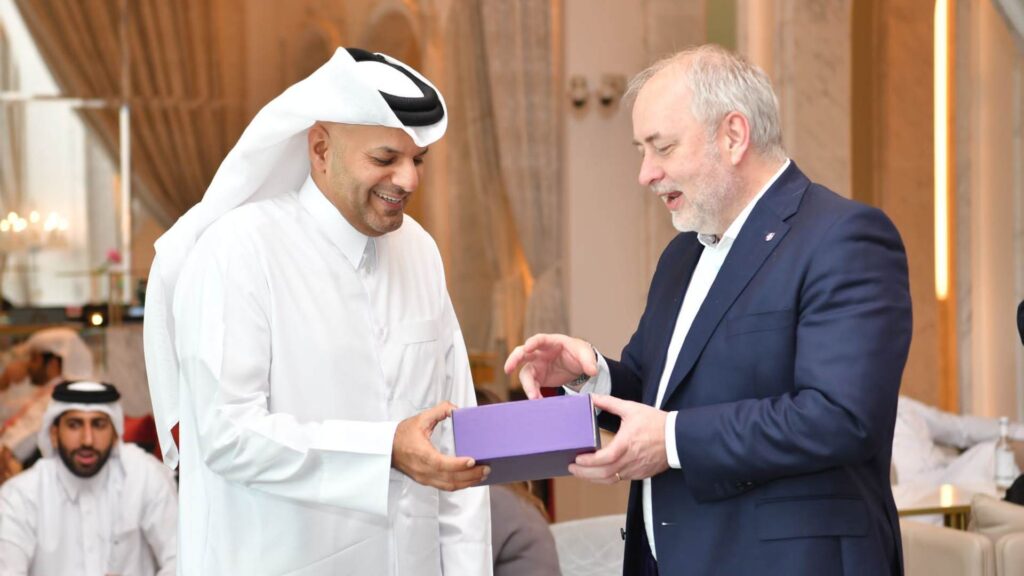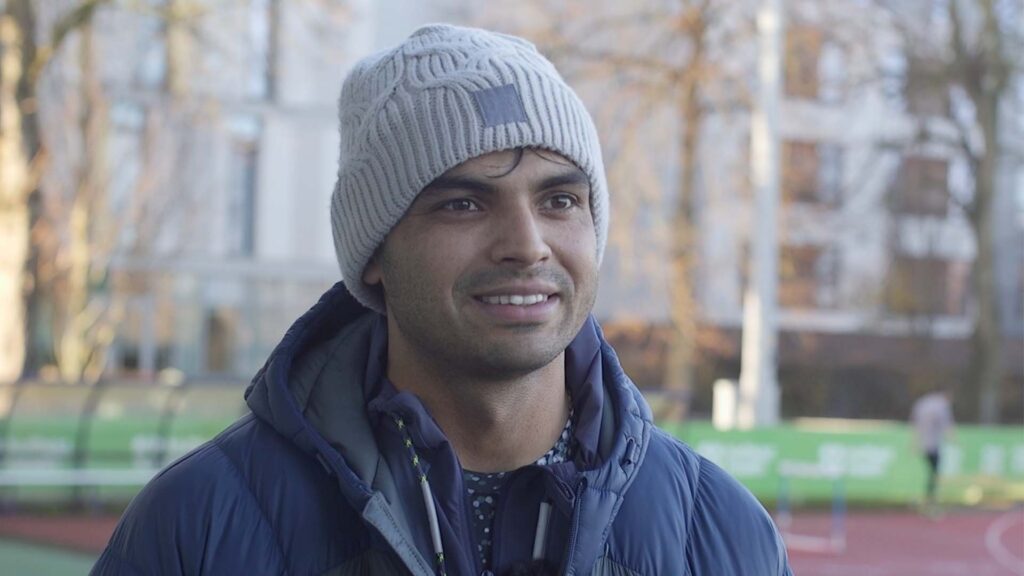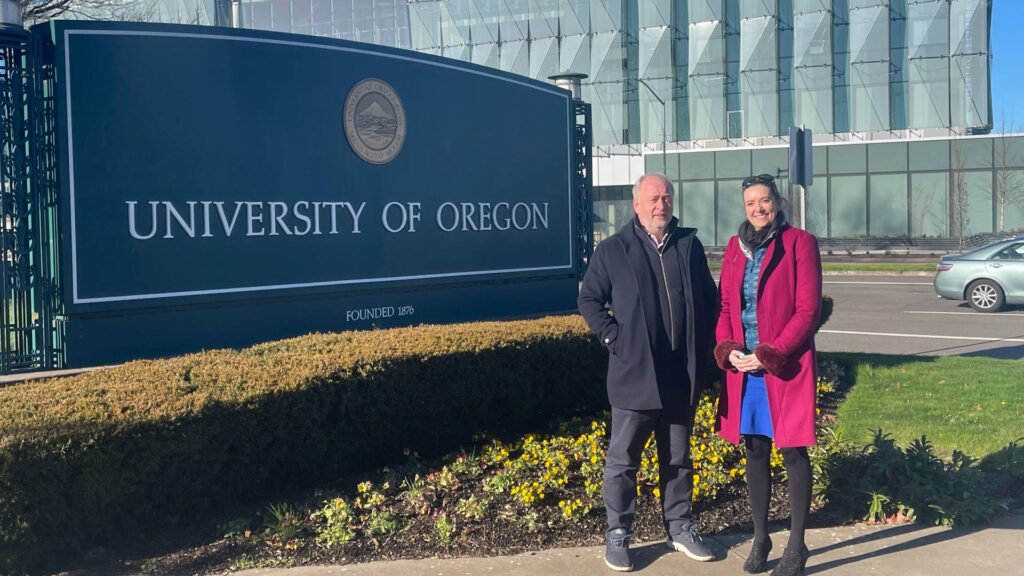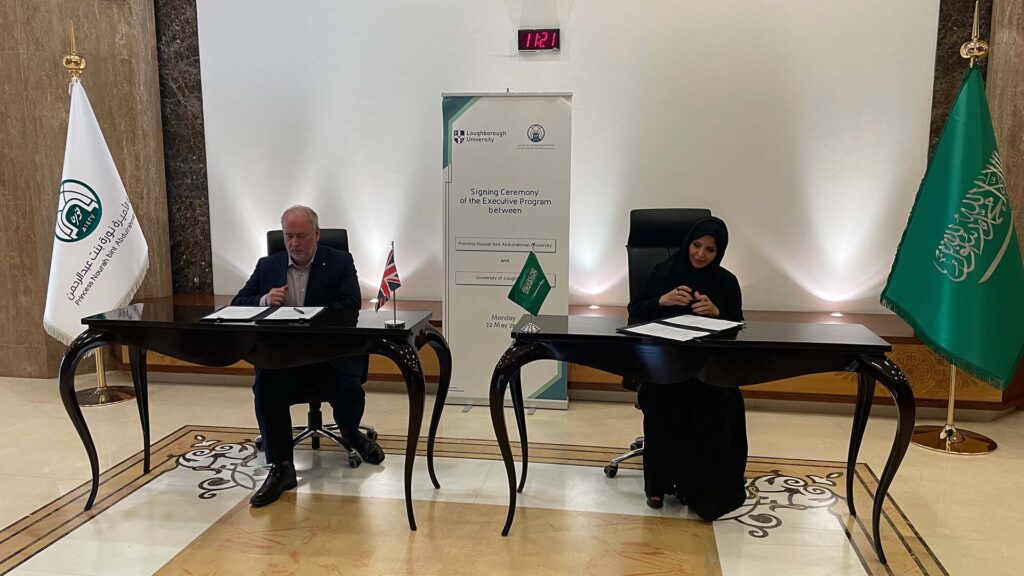Progress on our International Engagement and Impact Core Plan

In delivering the University Strategy, Creating Better Futures. Together, the six core plans provide the guiding framework for our actions.
This year the International Engagement and Impact Core Plan has been particularly prominent. We have appointed International Special Envoys for six key regions around the world, refocused the International Office into a Global Engagement team with Lily Rumsey as its new Director, and signed a partnership with the Cambridge Education Group to provide a foundation year for international students, which started in September. These are all important steps in our aim to be a more global university.
As part of the plan, I led delegations to three very different parts of the world. Covid had stopped much of our international travel, and whilst I am mindful of our sustainability agenda, such visits are vital to rekindle existing partnerships and form new relationships. Each visit had a particular focus and so here I wanted to give my reflections on how they inter-relate and how they support the core plan.
India
Our existing partnerships in India are strong. In the current academic year, we had nearly 700 new enrolments from India split across undergraduate and postgraduate study; giving us nearly 900 students in total.
This is our second-largest international grouping and the largest for postgraduate-taught students. We have well-established links with several of the prestigious Indian Institutes of Technology, such as Bombay, Dehli, Roorkee and Madras (going back over 40 years in some cases) and emerging links with institutions such as Anna University, Chennai and Symbiosis International University.
We have important industrial links with Bajaj Autos and with the Elms Sport Foundation and the Sports Authority of India, which build on the country’s excitement, pride and future through the vehicle of sport. Early successes include hosting a two-month winter training camp for Neeraj Chopra, the reigning Men’s Javelin Olympic and World Champion, along with the upskilling of Indian citizens working in sport through our online sports leadership and coaching education programmes.

India is a rapidly expanding country that values research and education. It was, therefore, exciting to see the esteem in which Loughborough University was held and to discuss future opportunities. Some exciting areas for development include: contributing towards the design of a high-performance sport centre in Ahmedabad and an ambition to recruit 18 PhD students for our first overseas split-site PhD programme on the built environment, hosted in partnership with NICMAR. But there is still plenty more to come, and I expect to see significant growth in our engagement with this region.
USA
This visit was a whistle-stop tour of the East and West coast.
We spent an amazing couple of days with Massachusetts Institute of Technology (MIT) – building on the success of our joint “Sport in the Metaverse” event. Their ambition and impact are truly impressive. However, I was particularly taken with their offering around staff and student entrepreneurship. This is something we can learn from and is an important part of our research and innovation core plan. At the University of Oregon, we discussed our joint plans for the Global Sporting University Network that we have just launched. Their sporting set-up felt similar to our own (although we currently lack a 54,000-seater stadium), but the museum celebrating their sporting heritage is something we should learn from.

We also hosted fantastic alumni events in New York and San Francisco – bringing together a broad range of our graduates, at many different stages in their careers and life journeys. It was great to hear about their experiences at Loughborough and their thoughts on how to best engage alumni in the current work of the university. We will be doing more in this space to ensure we tap into the strong institutional affinity that so many of our graduates feel.
Middle East
My third trip was to the Middle East. UAE and Qatar were really exciting. The legacy of the Football World Cup was still very visible in terms of physical infrastructure and national pride. I really wasn’t expecting almost every conversation to cover the British Football Premiership! Luckily, as a supporter of European Champions West Ham, I was on firm ground. It is clear that sport is increasingly important in the region and the opportunities for us, while still in their infancy, are clearly significant.
But it was Saudi Arabia that really surprised me. We spent a day at King Abdullah University of Science and Technology (KAUST). Their investment in staff and facilities in pursuit of their ambitious research and education agendas was astounding and it was amazing to see what they have achieved in the decade since they were founded. I counted 14 different nationalities in the leadership teams we met.
We also signed a Memorandum of Understanding with Princess Norah University. Their inspirational President – Her Excellency Dr Einas Al-Eissa – leads a dedicated team of academics who are educating 30,000 female students. “Empowering women” was a phrase that permeated the whole campus and every discussion.

It is clear there are challenges to partnering in this region, including issues around human rights, gender equality, LGBT+ rights and oil money. In such cases, I believe an important way to effect change is to engage, partner and challenge. Unilateral disengagement does not lead to change. I was amazed to observe the major changes in the region since my last visit seven years ago, particularly around the role of women in society. In many of the meetings we had, the person leading the government department or university was female. All meetings were also well-balanced in terms of gender representation.
But rather than giving my (male) perspective, I asked a female member of our team for her reflections:
“In the weeks leading up to the visit, I was nervous. What you hear and read about what life is like for women living in the Kingdom was certainly nerve-wracking. Different clothes and a selection of headscarves were all packed and I was certainly anxious as we got onto the plane into the unknown.
When it comes to women, it is clear Saudi has moved on from what is commonly reported – of course, we were in senior meetings and were well looked after, but in the public parts of the city I didn’t wear my headscarf once and I felt incredibly comfortable in not doing so. I felt safe and respected. My hand was asked to be shaken and my opinion was proactively sought.
And the impressive women in senior leadership roles in organisations in the Kingdom blew me away. They wanted to talk to me and compare notes – proud of their positions and finding immediate bonding in that oh-so-familiar language of trying to be a successful woman in a man’s world.
I felt wanted for being a woman in a senior meeting. The Saudi men and women I met were excited a Western female had come to their country. They were proud of the journey they are on – accepting they still have further to go on many issues – but I felt they wanted to celebrate what they have done in a very short space of time – and use it to catapult them further. There was a joyous youthful excitement that reminded me of what I see in my children; so proud of their achievements, yet impatient to rush to grow up to reach their adult potential.
They clearly have a lot more challenges to overcome but my main reflection was – unsurprisingly – don’t believe everything you read about the Kingdom!”
So, I believe there are significant opportunities for us in the region. Sport, health and wellbeing are central to the national strategies of all the countries we visited. They partner with the best in the world and have huge ambitions on a global stage. Our pre-eminence as an academic institution was widely recognised and so I look forward to exploring exciting opportunities.
Vice-Chancellor's Communications
Opinions and comment from the Vice-Chancellor, Professor Nick Jennings

